Kyrgyzstan: Ak Sai Petroglyphs
Кыргызстан: петроглифы Ак Сай
The half-day Ak Sai Petroglyphs hike on Issyk Kol’s south shore combines the historical interest of Buddhist Sanskrit petroglyphs (with some modern Soviet-era carvings alongside) with the beautiful landscapes of trekking in Kyrgyzstan.

Total Km: 8.5 km
Total Days: 1
Elevation Gain/Loss: 414m+ / 470m-
Start Point: Ak Sai Canyon
End Point: South Shore Highway
GPS Files
This easy half-day hike offers plentiful views and real historical interest with little in the way of difficulties from the terrain or navigation. The small mountains in the Ak Sai area are intertwined with countless dry riverbeds that wind through the arid terrain – it’s not for nothing that it’s referred to often as the Canyon of Forgotten Rivers. If you have a full-day to explore the area, it’s worth adding some extra wandering to the end of this route rather than cutting down from the petroglyphs straight back to the highway and the ending trailhead.
The Ak Sai Petroglyphs trek starts northwest of the village of Ak-Sai on Issyk Kol’s south shore, just beside a small ranch house used by a local herder. Follow a gently inclined trail about 500m up a small side canyon until a gently sloped hill offers easy access to climb towards the ridgeline above to the south.
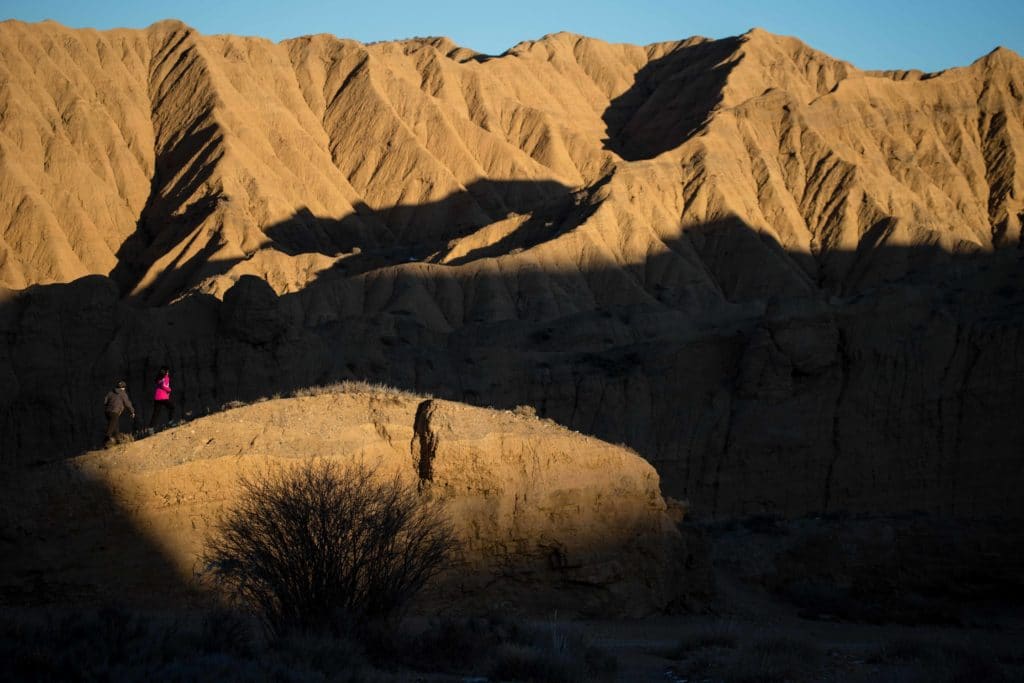
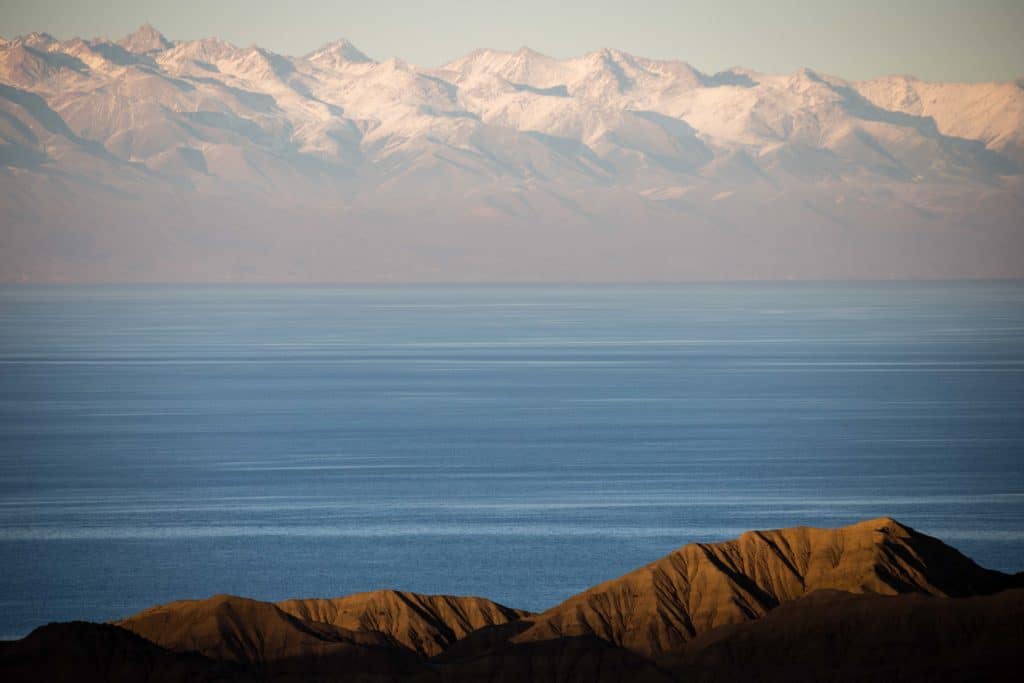
This track winds up and around the contours of the hills as it rises, about 400 vertical meters over three lateral kilometers, to the top of the first real ridge rising from the Issyk Kol lake shore. On the way up, turn back regularly for views combining the red-rock canyons here with the deep blue of Issyk Kol lake in the midground and the snow-capped peaks of the Kungey Alatau range on the far side – the range that forms the border with neighboring Kazakhstan.
Reaching the ridge, continue to follow it northwest for roughly three kilometers – you’ll know you’ve reached the petroglyph site when you see a small rock face surrounded by a low barrier wall make of large stones, which you’ll have to hop over in order to get to the bottom of the petroglyphs themselves.
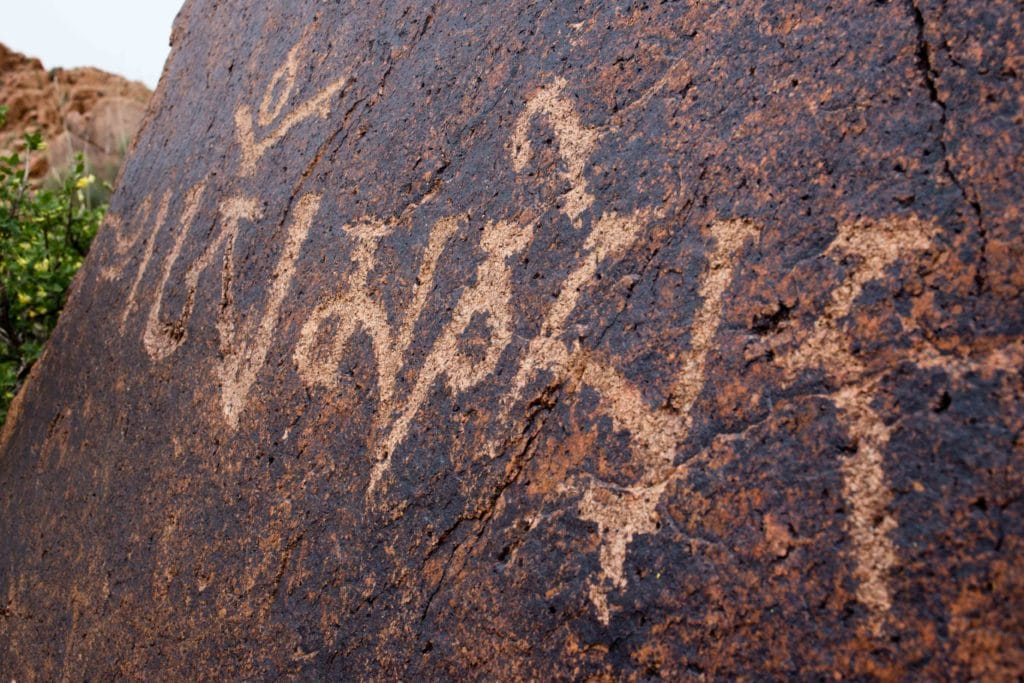
Understanding the Ak Sai Petroglyphs
The largest carving is the traditional Sanskrit mantra “Om mani padme hum” or, literally: Praise to the Jewel in the Lotus. Within Buddhism, this is often referred to as a condensation of the most important teachings of the Buddha. Buddhism has existed in Central Asia since at least the 3rd century B.C.E., and archaeological sites in Central Asia such as Kyrgyzstan’s Balasagun (a Sogdian and Karakhanid city now marked primarily by the restored Burana Minaret near Bishkek) show a wealth of flourishing religious traditions amongst local populations throughout history.
While we are not aware of any research on the origins of this specific petroglyph site, similar Buddhist sites at Tamga Tash (in the Issyk Kol village of Tamga not far from here) and at Issyk Ata in Chuy oblast show an enduring presence of Buddhism in modern-day Kyrgyzstan during the Silk Road era, and provide an interesting historical counterpoint to modern assumptions of Central Asia.
Alongside the ancient Buddhist petroglyphs are a handful of Soviet-era Cyrillic carvings – graffiti, to be certain, and yet old enough to have taken on a certain interest of their own for modern visitors. However, please do respect the site and refrain from adding any additional defacement to the rock face here.
Finishing the Ak Sai Petroglyphs hike
The trail as mapped in the GPS data included here swings around from the petroglyphs to drop steeply down towards the south to rendezvous with the Issyk Kol South Shore main highway – it’s around 3km further from the petroglyphs to the road. If you’re short on time or headed elsewhere for the afternoon, this is the quickest and easiest exit point.
Those who would like to spend longer and explore further can instead turn north towards the lake shore itself and wander amongst the surrounding small canyons. From any high viewpoint, sunset over Issyk Kul is a delight, especially when the golden hour light brings out the deep red of the surrounding canyons and the white-capped peaks beyond the lake’s opposite shore.
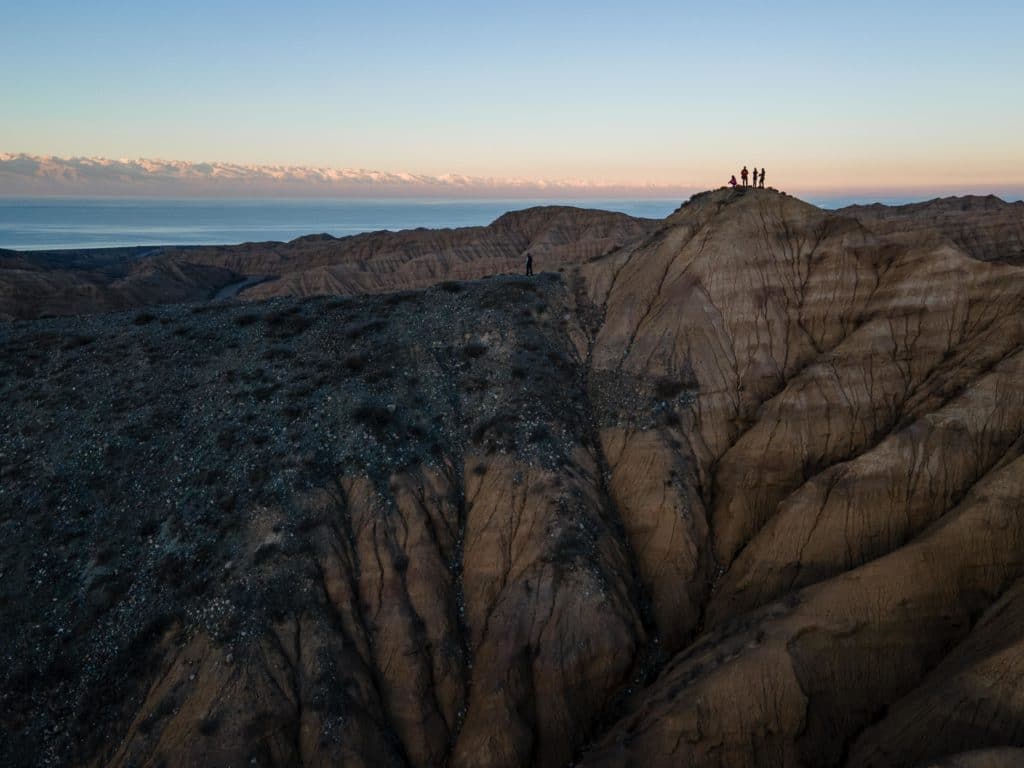
Alternate Hike Options
If you’d like to combine the Ak Sai Petroglyphs with either a visit to the small Salt Lake nearby or just a wander along a remote stretch of the Issyk Kol shore, it’s fairly easy to drop down from the petroglyphs to the north. Follow any promising track until it descends all the way to a dry river bed, and then keep going until the lake shore comes into view. For Feel Nomad Yurt Camp (linked below) turn east, or for the Salt Lake turn west and follow the shore around a small bay.
Good To Know
There are no entrance fees for the Ak Sai Petroglyphs hike, and the only equipment you’ll need to pack is to prepare you for the hot sunny days here – make sure to bring sunscreen, a wide hat, and far water than you’d expect for such a short hike.
Navigation for this walk is easy enough with just the GPS trail data, but if you’d like a guide and/or driver either of the two local organizations linked below can arrange these at reasonable expense.
Getting to the Ak Sai Petroglyphs
The nearest town to both trailheads is the eponymous Ak Sai – well served by public transport running to and fro along the Issyk Kol South Shore highway. To the starting point, it’s an easy ~3km walk along a dirt road from the village itself. The ending trailhead is a little further from any settlements, but still just beside the highway – you should have no problem finding transportation in either direction with only a minimal wait.
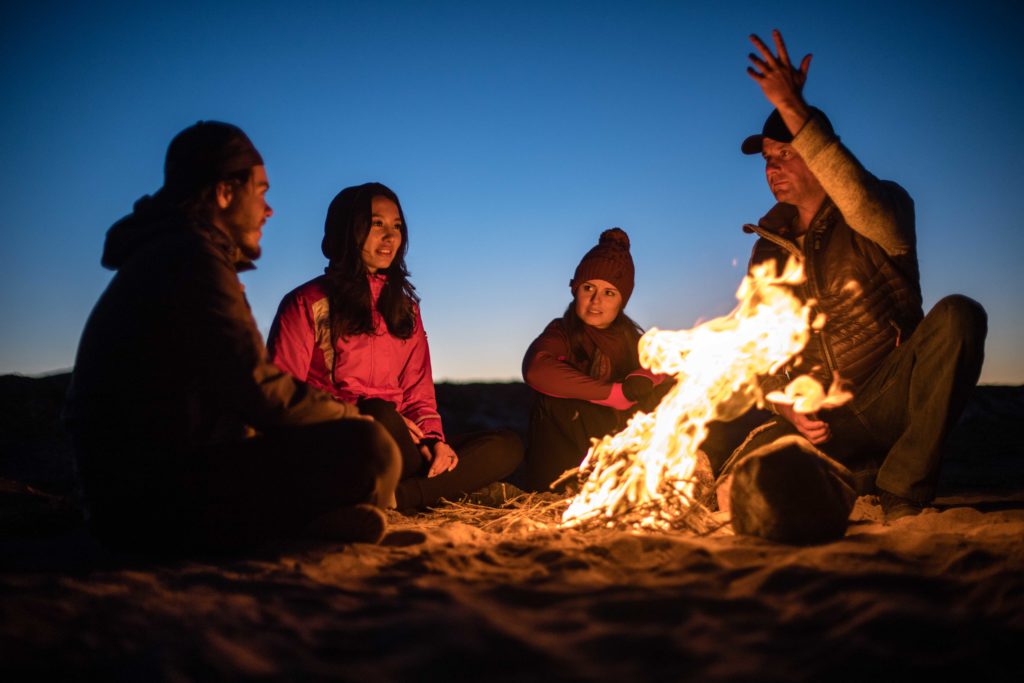
Where to Stay and Eat
The nearest option for accommodation and food is the fantastic Feel Nomad Yurt Camp on the southern shore of Issyk Kol lake about 7km northeast of the starting point of the hike. Alternatively, the nearby town of Bokonbaevo has a handful of guesthouses run by friendly local families – contact Destination South Shore for helping in arranging something.

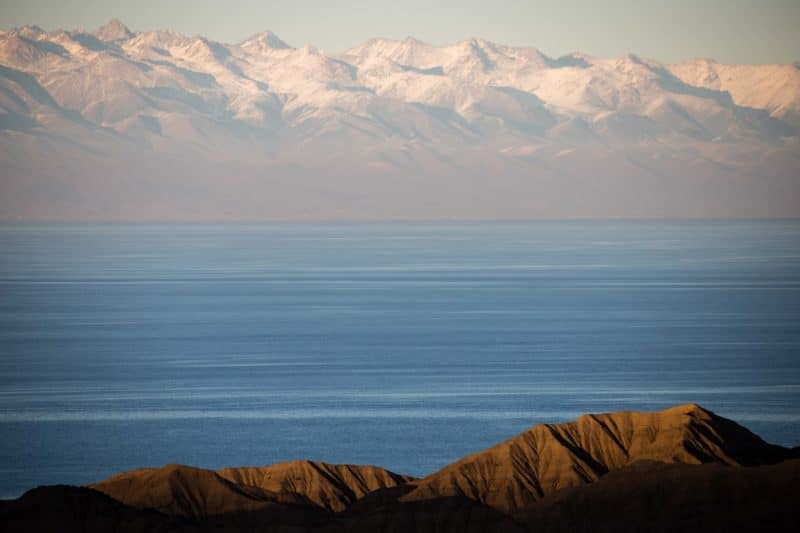
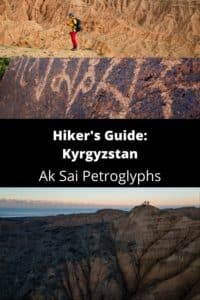
Has anyone done this hike recently, I’m passing through this area in September so I’m gonna do this hike and probably camp somewhere up there to see the sunset.
Does anyone know about the water situation? Are there any sources? If not how many litres would you recommend carrying?
Hike is still accessible, but there are no water sources so you’ll need to carry everything up. You could do it as a dayhike from Feel Nomad’s Yurt Camp if you don’t want to lug all the water up for an overnight.
Pingback: Kyrgyzstan: Ak Sai Panorama - Asia Hikes